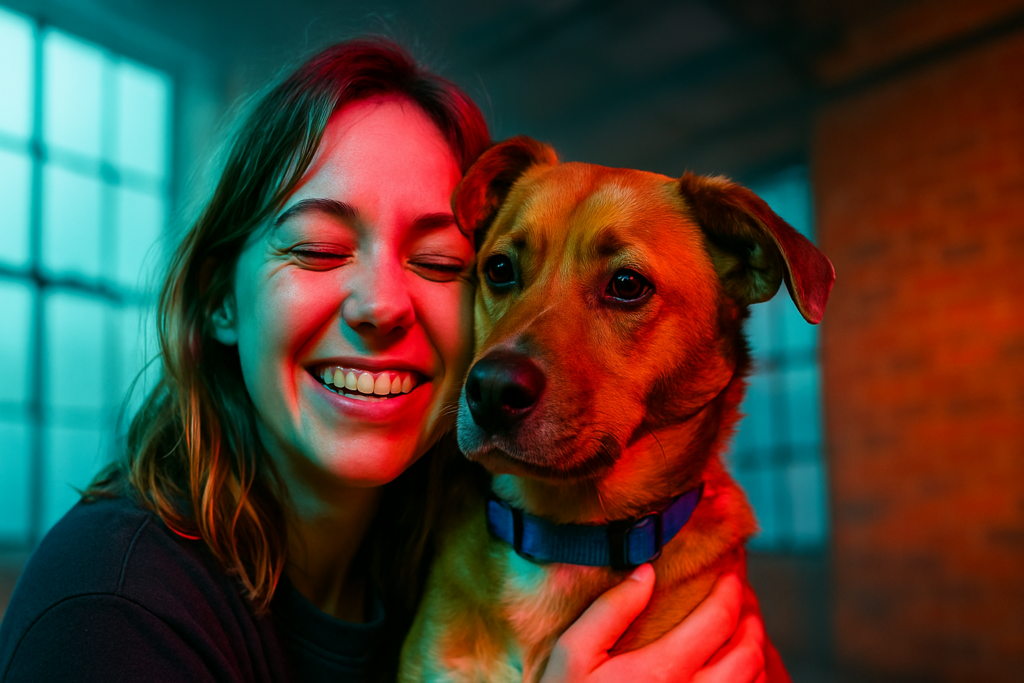Understanding Senior Pets
Senior pets offer unique advantages often overlooked in shelters.
What Qualifies as a Senior Pet?
Pets aged 7 or older usually fall into the senior category. Smaller dog breeds often age slower, while larger breeds become seniors quicker. Cats typically become seniors around their 7th to 10th year. Shelter staff can help determine the specific age category for each animal.
Common Misconceptions
Senior pets aren’t always frail and sickly. Many maintain good health with routine care. Some assume older pets won’t bond with new owners, but senior pets are often very affectionate.
Another myth is higher costs; while seniors may need more frequent vet visits, many remain healthy and require standard care similar to younger pets.
Emotional Benefits of Adopting a Senior Pet
Adopting a senior pet offers numerous emotional rewards. Their age often brings a unique blend of maturity and expressiveness.
Emotional Maturity and Stability
Senior pets generally exhibit emotional maturity and stability. Compared to younger animals, they have well-established temperaments, reducing unpredictable behavior.
This stability can create a soothing environment, making the bonding process smoother and more profound. By adopting a senior pet, you gain a companion who’s experienced and resilient.
Working with Their Known Personality
Senior pets already possess distinct, known personalities. Shelter staff can provide detailed descriptions of their behavior, preferences, and quirks, allowing for a more informed adoption.
This knowledge helps ensure a better match between the pet and owner. For example, adopting a calm senior cat suits someone seeking a low-maintenance companion. Familiarity with their personality leads to a more fulfilling and harmonious relationship.
Practical Advantages
Senior pets bring several practical benefits that younger pets don’t often provide.
Less Training Required
Senior pets already have fundamental skills and manners. Many of them are potty-trained, saving you the effort of housebreaking.
Additionally, older pets often know basic commands like “sit” and “stay,” reducing the time needed for obedience training. If you prefer not to invest substantial time in training, adopting a senior pet eliminates those extensive sessions.
Predictable Needs
Senior pets come with established habits and clear preferences. Unlike younger pets, whose needs and temperaments can change significantly, senior pets’ behavior patterns are stable.
This predictability aids in managing their care efficiently. You can plan their diet, exercise, and vet visits better since their requirements are well-known. This stability makes integrating an older pet into your household smoother.
Health Considerations

Senior pets may require more specialized care than younger ones, but being aware of common health issues and knowing how to handle vet visits and medications can help maintain their well-being.
Common Health Issues
Many senior pets face common health issues that become more prevalent with age. These include:
- arthritis, which can limit their mobility
- dental disease, which affects their ability to eat
- chronic conditions like diabetes or kidney disease
Past traumatic injuries can also resurface as older pets. Regular check-ups help identify and manage these issues early, ensuring a better quality of life for senior pets.
Handling Vet Visits and Medications
Regular vet visits become crucial for senior pets to monitor and manage their health conditions effectively. I ensure my senior pet sees a vet at least twice a year for comprehensive check-ups.
Keeping a consistent medication schedule reduces potential complications. Using pill pockets or mixing medication with food makes administering medication easier.
Maintaining a detailed log of vet visits and medications helps track their health and adjust care plans as needed. Reducing stress during vet visits enhances their overall experience; using familiar carriers and soothing aids can help.
Making a Home Welcoming for a Senior Pet
Senior pets thrive in environments tailored to their needs. Creating a comfortable home ensures they adjust smoothly and maintain their well-being.
Creating a Comfortable Living Space
Senior pets need spaces that minimize strain on their bodies. Soft bedding helps alleviate joint pain and provides a resting haven. Place beds in quiet, accessible areas to reduce stress and provide comfort.
Ensure food and water bowls are at an appropriate height to avoid neck strain. Consider using non-slip mats on floors to prevent falls, especially for pets with arthritis. Elevated feeders can also help with digestion and posture.
Adjusting Your Routine
- Adapting routines to fit a senior pet’s lifestyle fosters a strong bond.
- Establish regular feeding times to aid their digestion and medication schedules.
- Incorporate gentle exercise, like short walks or indoor play, to keep them active without overexertion.
- Monitor their activity levels and adjust accordingly, ensuring they get enough rest.
- Spend quality time through petting or grooming to strengthen your connection and provide emotional comfort.


